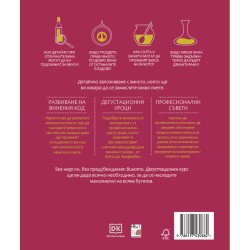

ИЗЧЕРПАН


The Wealth of Nations: Books IV-V
| Автор: | Adam Smith |
| Година на издаване: | 2000 |
| Език: | Английски |
| Корица: | 12 |
| Поредица: | Penguin classics |
| Страници: | 602 |
| Издател/Прозиводител: | PENGUIN BOOKS |
| ISBN/Barcode: | 9780140436150 |
| Код: | 0240.00394 |
- ИЗЧЕРПАН
4.10 (454 ratings by Goodreads)
21.90 лв.
От същия бранд
"What encourages the progress of population and improvement encourages that of real wealth and greatness."
In the first three volumes of his seminal work The Wealth of Nations, Adam Smith argued that ‘division of labour’ is the key to greater economic growth. Volume IV is an incisive examination of the mercantile system, in particular Britain’s colonial relationship with America, in which he suggests that economic regulation should be strictly limited and that a laissez-faire approach and free trade are essential to a successful economy. In Volume V Smith develops the case for a restricted state role, advocating a system of part private, part public system of finance for education, transport, justice and defence. Smith’s pioneering analysis was hugely influential in his own time, and offers subtle and penetrating insights into debates on economic policy that are still current today.
Andrew Skinner’s introduction compares Smith’s work with that of economists such as Quesnay and Turgot, places The Wealth of Nations in its historical context and discusses the originality and continuing importance of its ideas. This edition also contains a chronology, appendices and an index.
In the first three volumes of his seminal work The Wealth of Nations, Adam Smith argued that ‘division of labour’ is the key to greater economic growth. Volume IV is an incisive examination of the mercantile system, in particular Britain’s colonial relationship with America, in which he suggests that economic regulation should be strictly limited and that a laissez-faire approach and free trade are essential to a successful economy. In Volume V Smith develops the case for a restricted state role, advocating a system of part private, part public system of finance for education, transport, justice and defence. Smith’s pioneering analysis was hugely influential in his own time, and offers subtle and penetrating insights into debates on economic policy that are still current today.
Andrew Skinner’s introduction compares Smith’s work with that of economists such as Quesnay and Turgot, places The Wealth of Nations in its historical context and discusses the originality and continuing importance of its ideas. This edition also contains a chronology, appendices and an index.
































